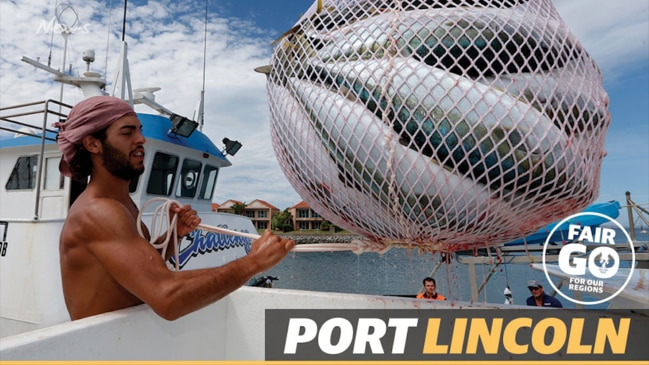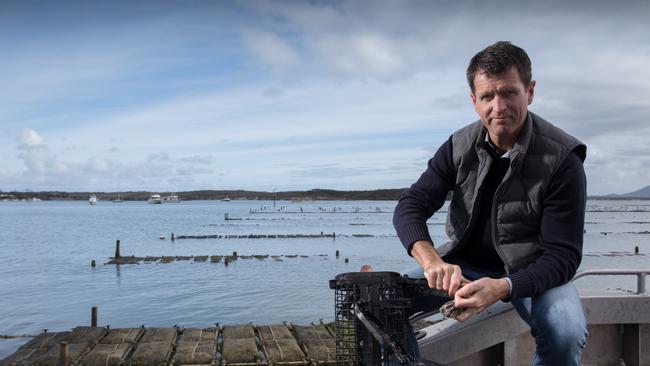Hatchery opening helps secure EP seafood supply
Eyre Peninsula oyster farmers are set to have access to larger spat through the opening of a new facility at Point Boston.

SA Business
Don't miss out on the headlines from SA Business. Followed categories will be added to My News.
A new spat hatchery has opened at Point Boston on the Eyre Peninsula, giving the region’s seafood farmers access to a secure supply of the oyster larvae.
Opening of the facility has come at an opportune time, with the state government recently opening up more than 6500 hectares of unallocated water for extra aquaculture production on the Eyre Peninsula.
The new Yumbah Hatchery is a result of the joint venture between South Australian business Yumbah Aquaculture and Tasmanian company Cameron’s Oysters.
In 2016, Yumbah Aquaculture and Cameron’s Oysters came together for the first time to create the Yumbah Hatchery business.
Its new facility will help the joint venture supply an estimated two-thirds of SA’s spat oyster market.

Yumbah Hatchery executive officer Tom Hyde said one of the major benefits of the new facility was the ability to produce spat 4mm-plus in size, helping with the oysters’ robustness and survivability.
“Once the spat get into the wild, they need to survive all the elements. So, the bigger and more mature they are, the better it is for farmers,” he said.
“Spat of 4mm and above is exactly what the market is after.”
Mr Hyde said another feature of the new facility was the ability to produce triploid spat.
MORE NEWS
First contracts signed on Eyre Peninsula port project
Fresh idea to bring the Central Market to your door
Triploids are valuable to the commercial aquaculture industry because of their potential for fast growth, superior meat quality, year-round harvestability and low environmental pressure on wild populations.
“SA hasn’t been able to produce them (triploids) before, so the fact this facility now can is a real bonus,” Mr Hyde said.
Yumbah Hatchery managing director Ben Cameron said another benefit of the facility was the fact it had received biosecurity accreditation through PIRSA, helping to ensure security of the region’s oyster spat supply into the future.
